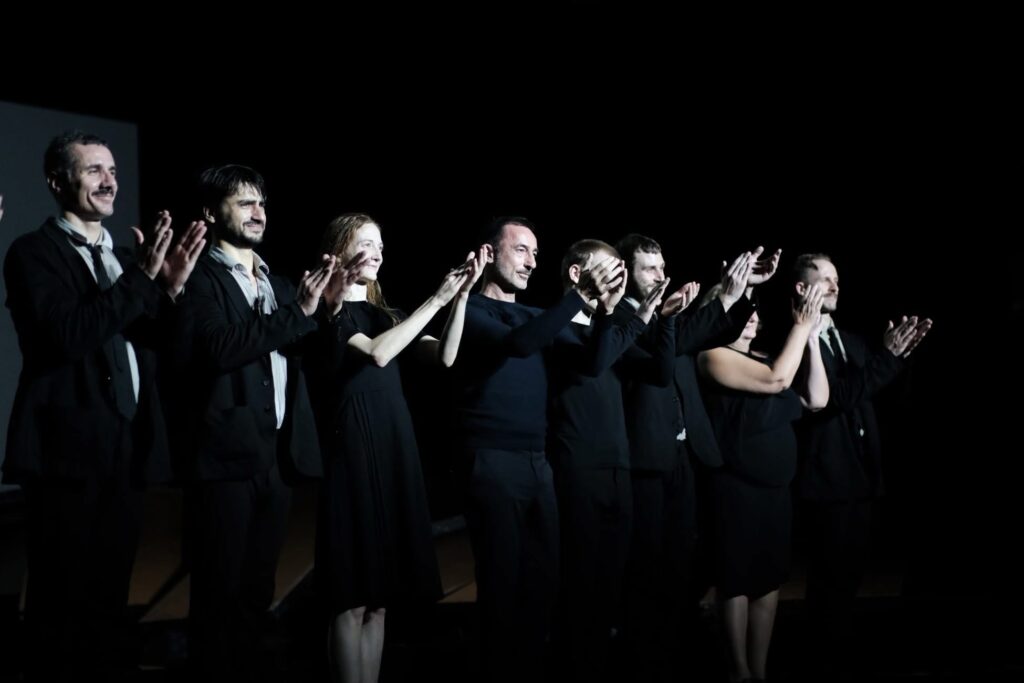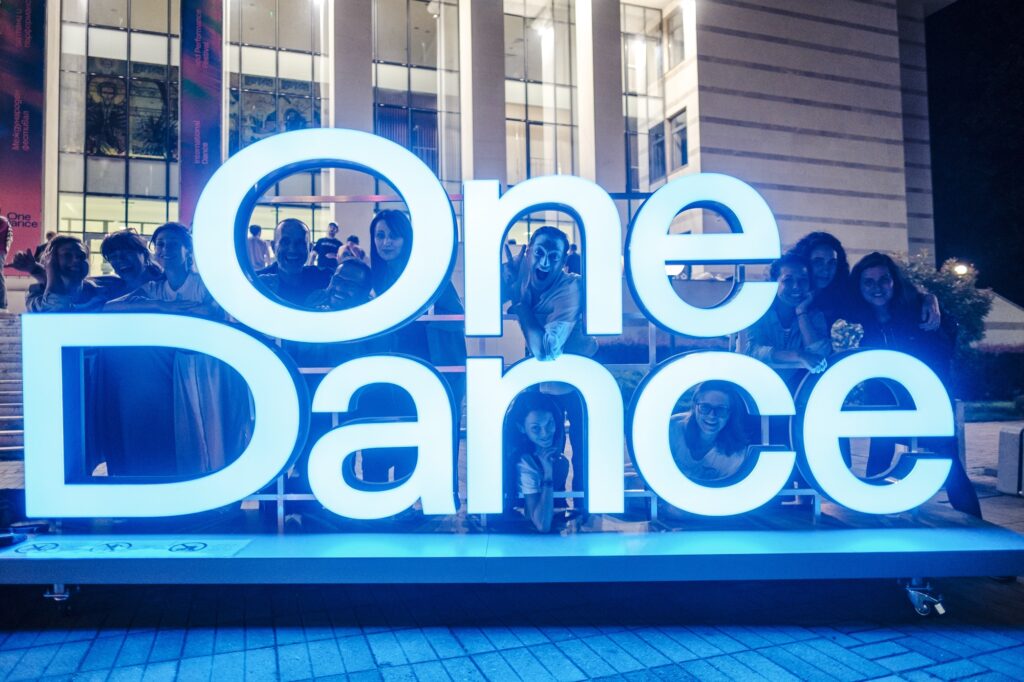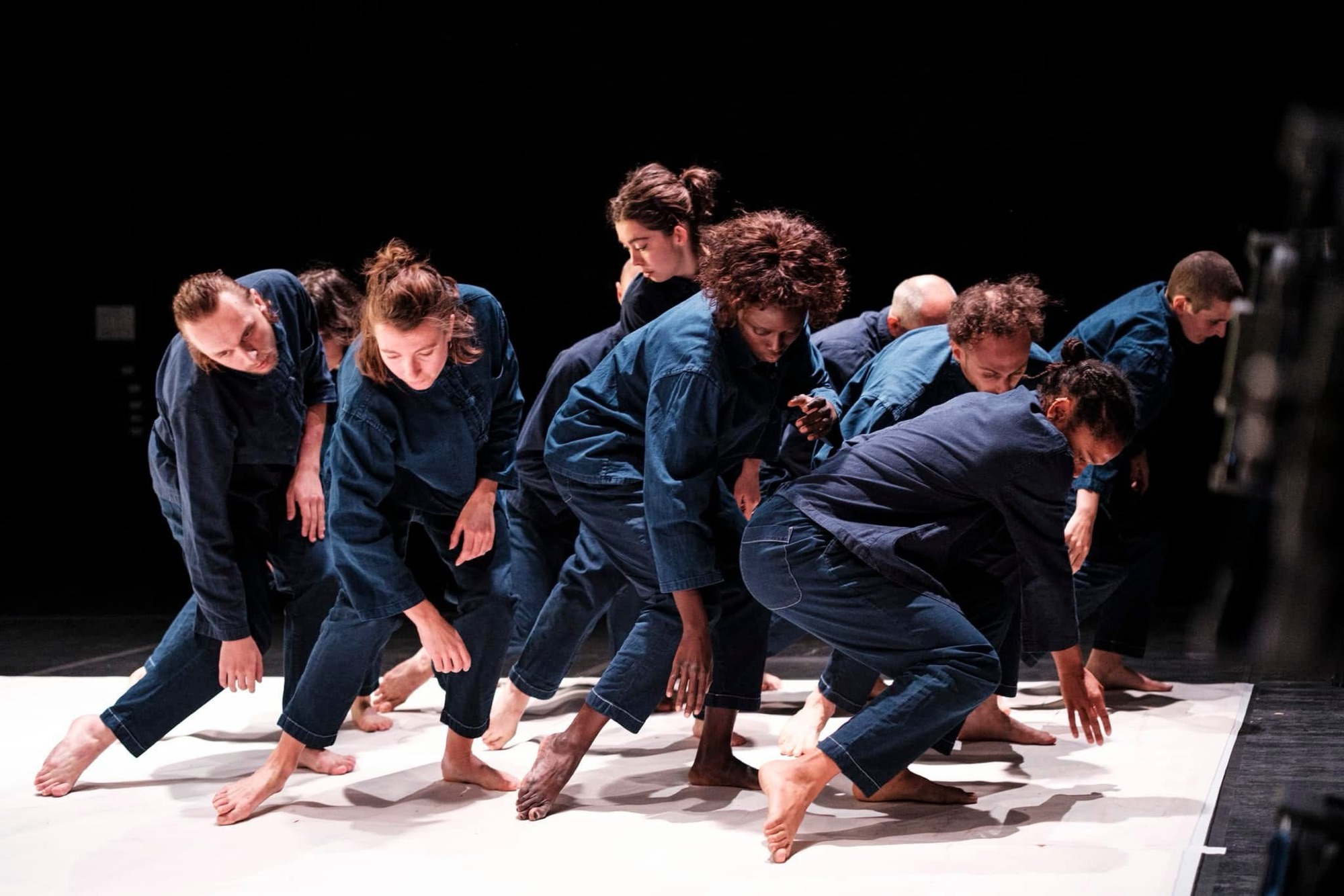By Inês Carvalho.
Founded in 2008, One Dance Festival in Plovdiv has grown into a vital platform for contemporary dance in Bulgaria and across the Balkans. With an independent team united by the will of showcasing both emerging and established artists, it became a meeting point of diverse movement languages, bridging possibilities across the region and the rest of the world.
Ahead of the festival’s 17th edition, dance art journal sat in conversation with ONE Foundation Director Assen Assenov and Artistic Director Elianna Lilova to talk about the legacy of One Dance Festival, and what the future holds for dance in the European landscape battling with political reforms that limit possibilities in artist creation.
DAJ: One Dance Festival celebrates 17 years this year. How has the programming been changing over the years?
Elia: As an independent organisation, we’ve always had to carve our own path. Our mission includes discovering new, young and emerging artists and putting them on international platforms, and that’s always been the cornerstone of how we curate One Dance Festival. We strive for a balance between well-established names and emerging talent, and I believe that’s one of the key strengths of One Dance Festival.
Asen: Seventeen years is a major milestone. We started as a very small team and completely independent, but I would say a turning point for us was when we co-produced our first international artist, Dimitris Papaioannou, in 2018. Afterward, we joined Big Pulse Dance Alliance, a network of 11 festivals and a dance center, which helped us defend and establish our role as a coproducer on the international level. This collaboration gave us international visibility and credibility, and valuable support to expand our programme and include a wide range of voices, from local talents to internationally acclaimed artists.

We’re now part of Dance Festival Network Europe, which has grown to 23 members. This is such a crucial opportunity because together we can advocate for budgets and the survival of contemporary dance, especially in today’s political climate where cultural funding is increasingly threatened.
DAJ: It’s exciting to see international names in the programme, but can you tell me more about how One Dance Fest supports Bulgarian Artists?
Elia: Absolutely. In 2013 and 2014, we organised two editions of the Bulgarian showcase. Only in recent years, especially after Covid, we boosted our efforts to support Bulgarian dance makers, and we now co-produce two to three Bulgarian works each year. But our support doesn’t stop at funding – we equally promote these artists internationally, connecting them to curators and agents.
DAJ: In this edition, you have a wide range of internationally acclaimed choreographers, including Lia Rodrigues or Christos Papadopoulos, but also Bulgarian artists. What can audiences expect from this creative synergy?
Asen: When we started 17 years ago, we felt there were no audiences for contemporary dance in Bulgaria. But now, we’re selling out performances multiple times, in a city of only 350,000 people. We have audiences travelling from all over the country, and neighbors in the Balkans region attending the festival, such as Greece, North Macedonia or Romania.
It was a long journey to put One Dance Festival into the map, but one we are very proud of. We’re the only structure in the country capable of presenting large-scale stage performances, and seeing audiences committed to experience what we offer really shows how far we’ve come to make One an established festival.
We never tied the festival to a rigid concept. Every year, we sought out bold, fresh voices—often outside prevailing trends. Art, historically, has been a powerful force, capable of shaping societies. While that power has diminished, there are still works that can deeply move and challenge us.
Elia: We’re seeing more tourists and foreigners attending too, especially since Plovdiv—our host city—is not only beautiful, but also one of the oldest cities in Europe. It has a unique atmosphere that adds to the festival’s charm. Audiences can also find new voices in the dance world. For me as Artistic Director, this is a priority in One Dance Festival: to provide a platform to discover and nurture new artists.
DAJ: You mentioned that One Dance Festival is a reference in the Balkans. What role does the festival play in supporting artists from the region?
Elia: This is an area where we really want to continue to improve. We present many Greek artists, and we’re excited about the new Moving Balkans initiative under Creative Europe. It’s still early days, but we believe it will elevate the visibility of Balkan artists internationally – and we really want to play a role in making this happen through One Dance Festival.
Asen: The scene in the region is really impressive—artists doing amazing work with very little funding. But the infrastructure remains fragile. Most of the work is project-based, and financial support is minimal. We hope this changes soon.

DAJ: The extremely limited funding for dance is a common issue across Europe. How are you coping with this reality in Bulgaria?
Asen: We’re in a complex landscape. We’ve seen a series of short-lived governments, and the trust in political institutions has eroded significantly over the past few years. Young generations are pushing for change, and we can look at examples from emerging artists in the festival. For this reason, we aim to continue being a hub for innovative dance expressions, keeping resilient and collaborative approaches as the way forward. We started as a small independent festival, and we value that mindset when it comes to dealing with funding cuts from public institutions.
Elia: I agree, and I’d add that frustration has created space for new movements and leaders, but sustaining momentum has proven difficult. However, our goal has always been pushing boundaries, both artistically and geographically, fostering access to world-class dance and creating space for emerging talent to flourish.
One Dance Festival brings contemporary dance to Plovdiv from 23 May – 8 June. Full programme and information can be found here: onedance-festival.com. Header image: cast of Oona Doherty’s Navy Blue, image by Mihail Novakov.
